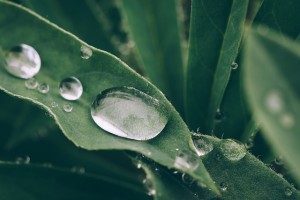appearance, personality, emission, radiation ![]()
[noun]
[de uit-stra-ling, de uit-stra-lin-gen]
"Uitstraling" consists of "uit", which is the opposite of "in" and means from inside to outside, and "straling" which means "radiation". "Uitstraling" can be used in both a literal and a figurative sense. In the literal sense, it can be translated as "emission". In the figurative sense, "uitstraling" relates to the appearance of something, or the emotions that a person displays. The related verb is "uitstralen" ("to radiate").
Examples:
– "Ik vind dat de website van ons bedrijf geen professionele uitstraling heeft."
("I think that the website of our company does not have a professional appearance.")
– "Veel mensen vinden dat Barack Obama een enorme uitstraling heeft."
("A lot of people think that Barack Obama possesses charisma / has a huge personality." Please note that "charisma" is also a Dutch word.)
– "<Plaatje:> Het ontwerp van het Abu Dhabi Performing Arts Centre heeft een futuristische uitstraling.
("<Picture:> The design of the Abu Dhabi Performing Arts Centre has a futuristic appearance.")
– "Mijn buurvrouw heeft pijn in haar rug die uitstraalt naar haar been."
("My [female] neigbour has pain in her back that radiates to her leg.")
– "De puber had ondanks zijn jonge leeftijd een wijze uitstraling."
("The adolescent had a wise appearance despite his young age.")
– "Zij straalt zelfvertrouwen uit."
("She oozes self-confidence.")
Related words:
– Uitstralen: to radiate [verb] [straalde uit, uitgestraald] [regular strong verb].
– Charisma: charisma [noun] [het charisma, <no plural>].

 A “druppel” is a drop of any liquid. A quite famous expression with “druppel” is “de druppel die de emmer doet overlopen” (“the last drop makes the cup run over”), see
A “druppel” is a drop of any liquid. A quite famous expression with “druppel” is “de druppel die de emmer doet overlopen” (“the last drop makes the cup run over”), see 


